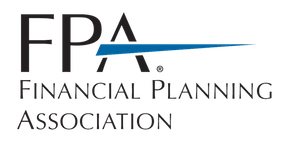As you approach the empty nest phase of life, a new chapter begins. It’s a time filled with emotional and financial changes that will likely reshape your daily life and long-term plans. This period often brings a mix of relief, nostalgia, and anticipation for what’s ahead. From a financial standpoint, it’s a pivotal moment. The departure of children from the home marks a shift in your financial responsibilities and goals. Here are some tips to help you navigate the financial planning landscape as an empty nester, ensuring you make the most of this transformative stage of life.
Understanding the Financial Impact of Empty Nesting
The empty nest phase often brings a significant shift in your personal financial dynamics. While your children may no longer depend on you for a roof over their heads, they might still need financial support for a variety of reasons. A survey by 55places found that nearly 40% of empty nesters support their adult children financially, covering expenses like mobile phone plans, rent, groceries, and student loans, with an average monthly expenditure of $254. You will need to strike a delicate balance between assisting them and focusing on your own financial priorities, like retirement savings. It can be challenging, but it’s crucial for your long-term financial health to build a plan for your children’s gradual financial independence that involves setting clear financial boundaries and possibly offering support in the form of loans rather than outright gifts. This strategy can help them learn financial responsibility while easing their fiscal burdens.
The emotional aspect of the transition to empty nester can’t be overlooked. Shifting from caretaker to financial advisor for your adult children involves significant emotional adjustments. Open communication and reasonable financial boundaries are essential to the process. Practical tips for balancing financial support for adult children with your own financial goals include:
- Regularly reviewing your budget to accurately account for any support you provide.
- Setting clear financial limits to ensure your retirement savings stay on track.
- Considering your children’s financial needs in your long-term financial planning.
Refining Financial Goals and Relationships in the Empty Nest Phase
Entering the empty nest phase often triggers a newfound awareness of the pending reality of retirement. It’s an opportune moment to reassess and refine your own financial goals. This includes reviewing your retirement plans to be sure that your savings are on track and making adjustments as needed.
Investment strategies during this phase may require a shift in strategy and focus. Balancing aggressive investments with more secure options is essential, considering your shorter time horizon to retirement. This is also a good time to refine financial goals based on your current financial status. Adjusting savings targets, revisiting insurance policies, and planning for significant expenses like travel or hobbies become more pertinent as retirement nears.
Investing in personal relationships, especially with your spouse, is also important during this life transition. Enjoying shared interests, aligning financial goals, and planning for a future that includes both individual and shared aspirations can strengthen your bond. The emotional fulfillment that comes from realizing and achieving long-term financial goals is profound—celebrate these milestones together and use them as motivation for future planning. Additional steps for refining your financial goals while strengthening your relationships include:
- Planning regular financial goal-based conversations with your spouse.
- Setting new short-term and long-term goals together.
- Seeking professional financial advice to tailor a plan that meets your unique needs.
Downsizing and Managing Assets with a Focus on Lifestyle and Retirement Plans
The decision to downsize is a common consideration for empty nesters. It’s a move that intertwines financial practicalities with lifestyle choices. Understanding current mortgage rates and housing market trends is vital, as downsizing doesn’t always mean a lower price point. Your decision should be financially prudent and align with your retirement plans.
Consider the type of housing that fits your retirement lifestyle. Whether it’s a ‘lock-and-walk’ property for ease of travel or a family-friendly home for visits from grandchildren, each has unique financial implications. Maintenance and upkeep are practical aspects to consider. A smaller property or a community with maintenance services can offer more freedom and less responsibility, appealing to those wanting to travel or reduce home-related worries.
A balanced approach is key, weighing both emotional desires and practical aspects. Consulting with a financial planner can help you make informed decisions.
Maximizing Retirement Savings in the Empty Nest Phase
The empty nest stage often presents the greatest opportunity to accelerate your retirement savings, thanks to reduced day-to-day expenses and potentially higher disposable income. But are you saving enough? Understanding this is crucial, as detailed in our post, How do I know if I have enough to retire? Furthermore, a study by the Center for Retirement Research at Boston College, as reported by PlanSponsor, found that while empty nesters do increase their 401(k) contributions, these increments are typically minimal.
Evaluating your new financial situation is essential once your children become financially independent, potentially increasing your capacity to contribute to retirement savings. Using tax-efficient accounts like Roth IRAs, traditional IRAs, and 401(k)s is key. For more insights into how these can be used as tax tools, see our article on Investment Accounts as Tax Tools. Balancing your newfound ability to save with short-term and long-term goals ensures you’re preparing for retirement while also enjoying your current lifestyle. Working with a financial advisor can help tailor a retirement savings plan that is tax-efficient and aligns with your specific financial situation and goals.
As you navigate the empty nest phase, remember it’s a time of significant transition, both emotionally and financially. This article offers a starting point for adjusting your financial plan to this new stage of life. From supporting adult children to refining investment strategies and considering downsizing options, each step is a move toward securing your financial future while embracing the joys of this chapter in your life. For personalized advice tailored to your unique situation, feel free to reach out to us at Sonmore Financial. Your journey as an empty nester is just beginning, and sound financial planning is key to making the most of it.









